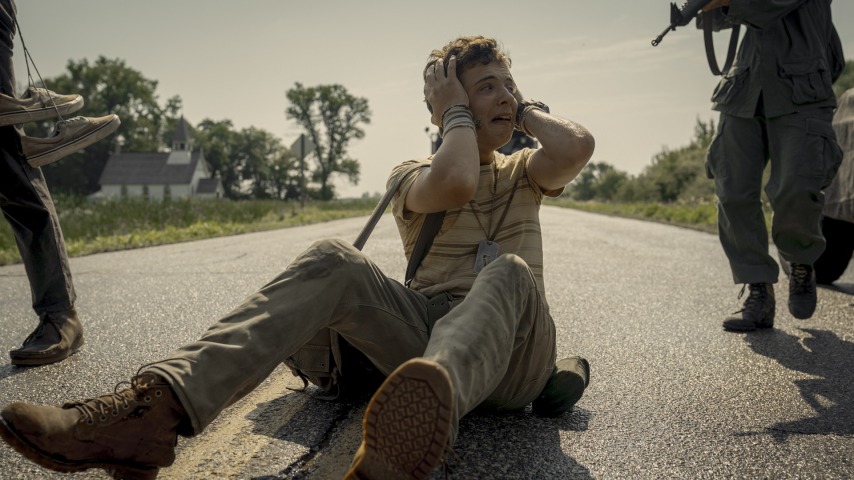Spoiler Space: The Long Walk's feel-bad ending is even bleaker than the book's
It's not like Stephen King gave his novel a happy ending, but the film adaptation breaks the winner down to an even sadder place.
Photo: Lionsgate
Spoiler Space offers thoughts on, and a place to discuss, the plot points we can’t disclose in our official review. Fair warning: This article features plot details of The Long Walk.
From the very first novel Stephen King published under the name Richard Bachman—the 1977 school-shooting novel Rage—his pseudonymous work has been even bleaker than what’s normally associated with the horror master. The stories collected in The Bachman Books are downbeat and bloody. The heroes almost always die at the end, usually in a self-inflicted act of violence or terrorism. They thrum with an angry, youthful nihilism so potent and potentially seductive that King let Rage fall out of print after it was associated with a number of high school gunmen. All things considered, The Long Walk might have one of the sunnier endings in the Bachman oeuvre, since there’s at least a chance that the protagonist is alive on the final page. Even after countless young men died on the road to glory and the lone survivor has lost his marbles, there remained something like relief beckoning the exhausted Long Walk‘s winner. But the feel-bad ending of director Francis Lawrence and writer JT Mollner’s adaptation lacks even that small consolation—and it hides its even sadder finale under the guise of satisfaction.
Around the third act of the film, we learn that Ray Garraty (Cooper Hoffman), as friendly and good-hearted as he is throughout the walk, was motivated to enter and to win by the dream of violent revenge. His quest is not one of financial greed or mere survival. He wants to use the wish he gets for winning to snag a carbine and shoot The Major (Mark Hamill) in the head, just like so many of his peers on this walk (and his dissident father) were executed.
It’s a childish eye-for-an-eye fantasy, one that his level-headed—almost saintly—pal Pete McVries (David Jonsson) questions from the get-go. What will this solve? Will cutting off the head of the snake really change anything about the Walk, or will it just be a cheap hit of dopamine? These questions haunt Mollner’s new ending, which makes good on The Long Walk‘s film-long investment in Pete as an enlightened guy worth corrupting.

















![HBO teases new Euphoria, Larry David, and much more in 2026 sizzle reel [Updated]](https://img.pastemagazine.com/wp-content/avuploads/2025/12/12100344/MixCollage-12-Dec-2025-09-56-AM-9137.jpg)






















